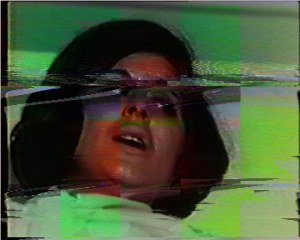Tags
Arab CInema, Cornerhouse, documentary, Egyptian Cinema, middle-east, politics, Rania Stephan, Soad Hosni
The Three Disappearances of Soad Hosni is the first feature film from director Rania Stephan.
At the screening yesterday in screen 2 of Manchester’s Cornerhouse, the film was introduced by the director who described it as a homage to Egyptian cinema. The film was very art-house and whereas I like to be challenged, there is a lot about this film that I’m still undecided on.
I was originally drawn to this piece of cinema, because the concept intrigued me: It was the life of actress Soad Hosni told through edited clips from films she had appeared in. After seeing Senna last year, a documentary, which felt more like a drama through it’s expert editing and pacing I was hoping to be equally impressed. Whereas Senna was very much a slick well crafted documentary, The Three Disappearances of Soad Hosni felt disjointed, and for a 70 minute film, it took me about 15 mins to really understand what was happening on screen. The clips are roughly edited together from VHS tapes and the audio, from as far as I could ascertain hadn’t been cleaned up in post production – So what I was seeing was raw. Which is part of the films charm, but I can see how many would instantly be put off by this.
What really intrigued me, as I was watching this, was how modern the women were being represented, as an Arab film, I was rather, and arguably naively, expecting to see women represented as somewhat repressed, wearing full Muslim traditional wear. But Hosni was shown as a fashionable woman of the 60s, with a similar screen presence of Elizabeth Taylor, This surprised me, and with the Arab Spring uprising across the Middle East, it’s a stark contrast as to what I’ve been seeing and reading about. Hosni, it seems, was the personfication of a modern Egypt at the hight of her career.
The problem with the film is through is disjointed editing and pacing, I didn’t feel an emotional connection to Hosni, Understanding that this is a difficult film and perhaps Stephan never intended for an emotional response, I felt, at times like I was watching this film with a restricted view, striving to allow myself to be carried by the narrative.
It’s impossible to be a passive reviewer of this, you need to be heavily invested and whereas I knew very little about Hosni, as the film ended I can’t say that I felt educated – but I was relieved that I made it through to the end of the film understanding the majority of the story that was being told, which left me unsatisfied and not wanting more.
I think it would have been better if the film was half the length and was sold as a short. Because 70 mins, even though this isn’t quite the length of a feature, is still a lot for an audience to take without the emotional connection.
What I wanted was to understand who Hosni was, How a woman in an Arab country with it’s political issues was able to become a celebrity and also how she was able to be sexualised on film, particularly when the sexualisation of women in Arabian states is very taboo, and finally I wanted to know why she committed suicide, but I’m still none the wiser – I feel like I’ve been given a very high level description of her life and nothing else – which, considering the medium of which the film was created is probably the best it was going to be.
The effort that Stephan has put into this documentary should be commended; it’s detail is lacking, but through all the fictitious characters that Hosni played, I was able to get a grasp on key moments of her life and that probably wasn’t an easy exercise.


I’ve seen the docmentary, and familiar with Soad Hosni’s career or as they called her the “Cinderella of the Arab screen”. I has similar feelings but when I spoke to the director I was convinced with the reason why she decided to show her this way. It wasn’t to appease the curiosity of the viewer but to get them eager to learn more about her, her main reason was that Soad didn’t really exist outsie her films who represenred bits and pieces of her persona.
Hi thanks for your comment. I didn’t stay for the directors Q&A, I wish I did now as from what you’ve written, I think I would have had a deeper appreciation for the peice. I have to admit, I have been looking for a biography of her, since seeing the film- The director has really achieved her goal of getting the audience eager to learn more about Hosni.
This sounds very interesting.
That’s the closest I could get of her bio, hope it’s helpful. Thanks for the review by the way: http://en.wikipedia.org/wiki/Soad_Hosny